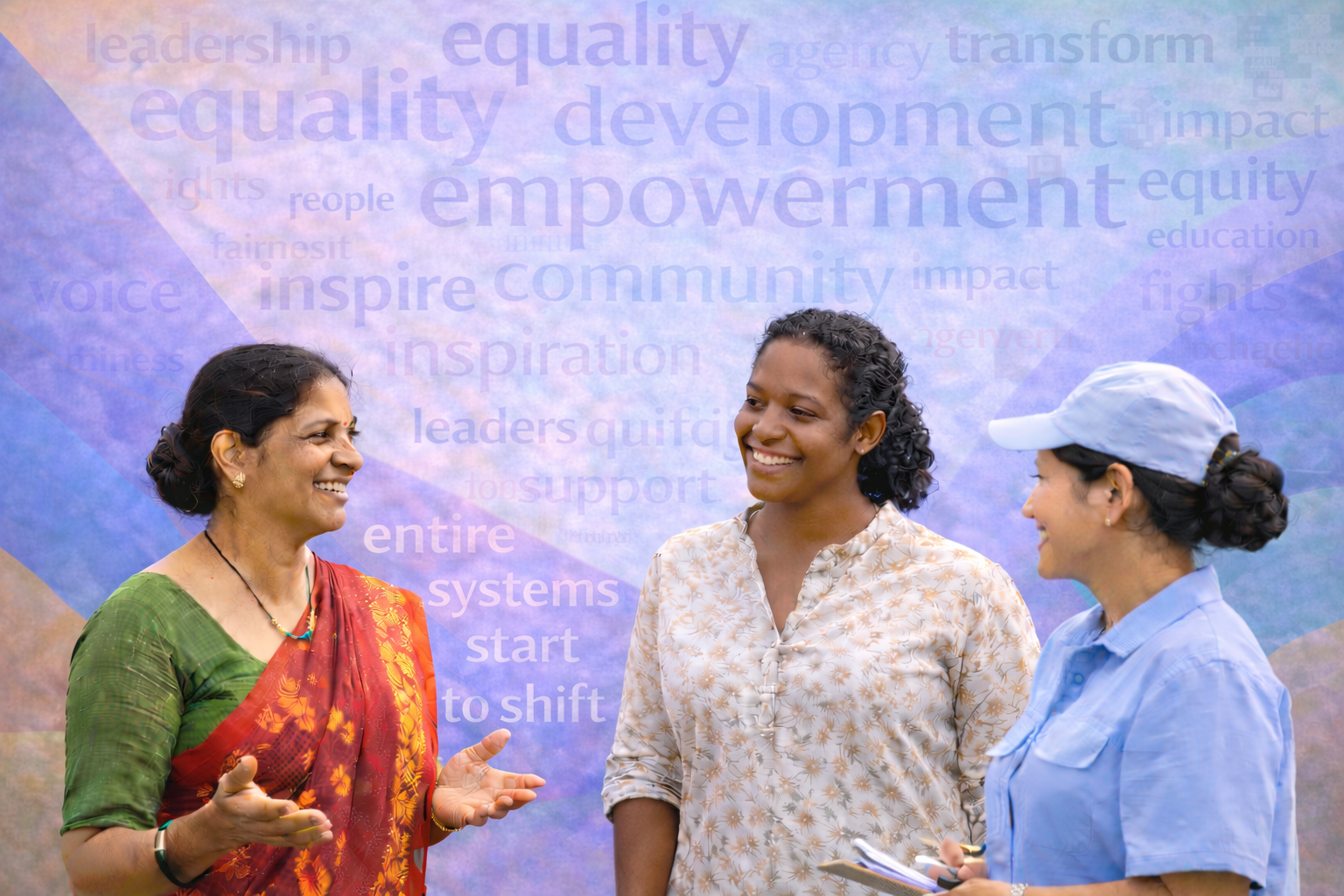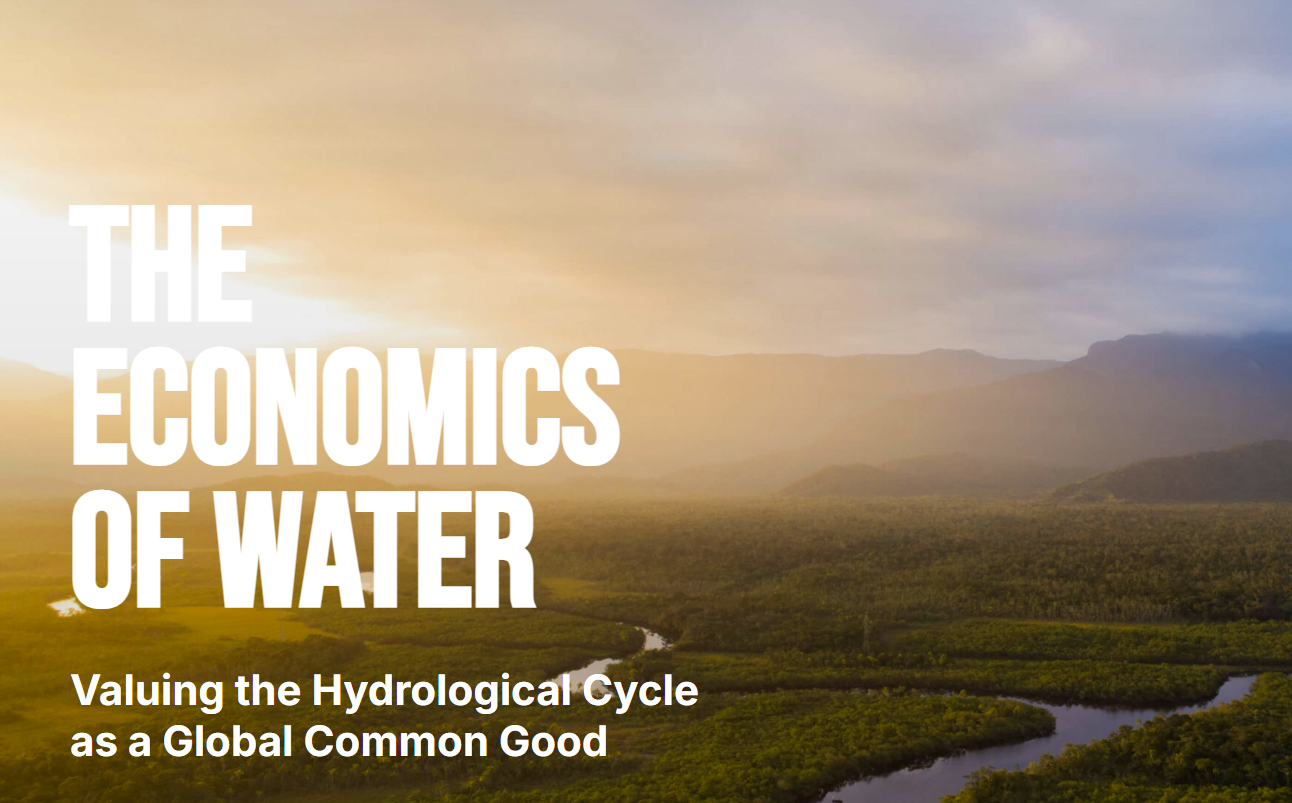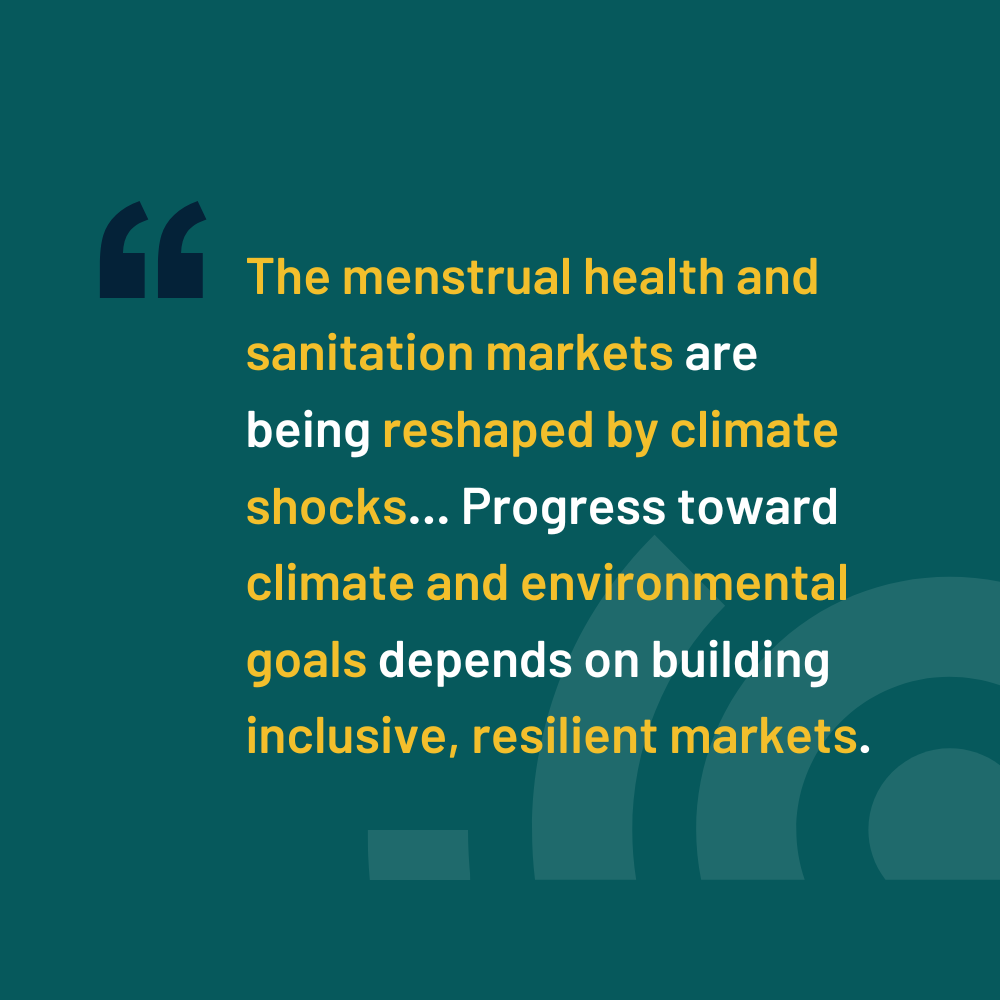
SHF Statement on the Global Commission on the Economics of Water Report

The UN’s Sanitation and Hygiene Fund (SHF) welcomes the Global Commission on the Economics of Water’s (GCEW) report published today calling for a sea change in how the world values, manages and finances water and sanitation.
The landmark report titled The Economics of Water: Valuing the Hydrological Cycle as a Global Common Good dives deep into the interconnectedness of ‘Earth’s most precious resource’- water, specifically ‘blue water’ and ‘green water, to the Sustainable Development Goals (SDGs) and the human rights, food security, well-being and health of people, countries and the planet. Authors Mariana Mazzucato, Ngozi Okonjo-Iweala, Johan Rockström and Tharman Shanmugaratnam call for a ‘new water economics’ that recognizes water’s linkages with environmental sustainability, social equity, and economic efficiency. These linkages extend to sanitation which, through what is often referred to as ‘brown water’, is critical to truly capture the full value of every (water) drop and ensure benefits for all people everywhere and the environment.
The importance of sanitation, in particular through the application of new approaches such as the operationally, environmentally and financially sustainable Next Generation Sanitation that places user preference and innovative, off-grid solutions at its heart and an emphasis on circularity and wastewater treatment, is captured in two of the five mission areas outlined by the report as ‘the most important and interconnected challenges of the global water crisis’. Alongside actions on food systems, natural habitats and clean energy in an AI-rich era, the report calls for the establishment of a circular waste economy (Mission 3) and ensuring that no child under 5 dies from unsafe water and sanitation by 2030 (Mission 5). The report underlines that these missions must be achieved through forging impactful partnerships between governments, utilities and the private sector, including on the critical areas of finance, innovation and data, to deliver efficient, equitable, and environmentally sustainable water solutions.
“The GCEW report is a pathbreaking publication clearly demonstrating that when it comes to sanitation and the well-being of people, economies and the planet, there can be no trade off between effectiveness, efficiency and equity. With the appointment of the new UN Special Envoy for Water and the recent adoption of the UN System-wide Strategy for Water and Sanitation, we have a make or break opportunity to shape thriving sanitation economies that deliver effective, climate-resilient next generation sanitation solutions for all through innovative technologies, partnerships and most importantly financing that brings together governments, the private sector, utilities, grounded in data,” said Dominic O’Neill, Executive Director, SHF. “Often overlooked, brown water and its reuse holds tremendous untapped potential especially for building circular waste economies that can deliver impacts for people and the planet - we must not flush this opportunity away.”
SHF is committed to working with our partners and donors, including the Kingdom of the Netherlands and Switzerland, to chart a new course for water and sanitation, fundamental to equity and prosperity of people, through the application of the GCEW recommendations outlined in the report. These are perfectly aligned with our persistent focus on shaping markets, finance and partnerships, through the use of data, to value and fund sanitation and hygiene differently and deliver impact for communities, economies and the environment.
Find out more about our approach here.



